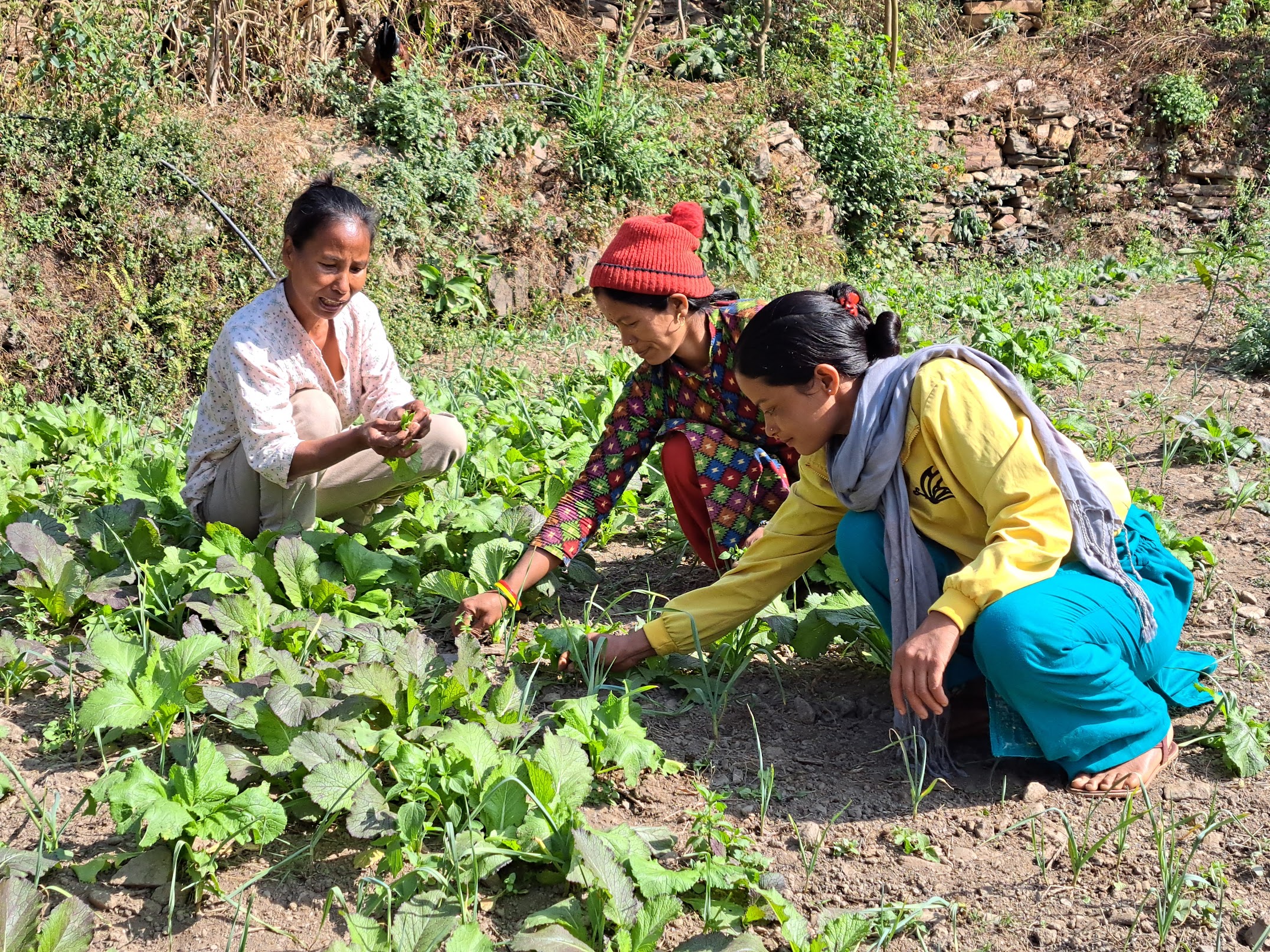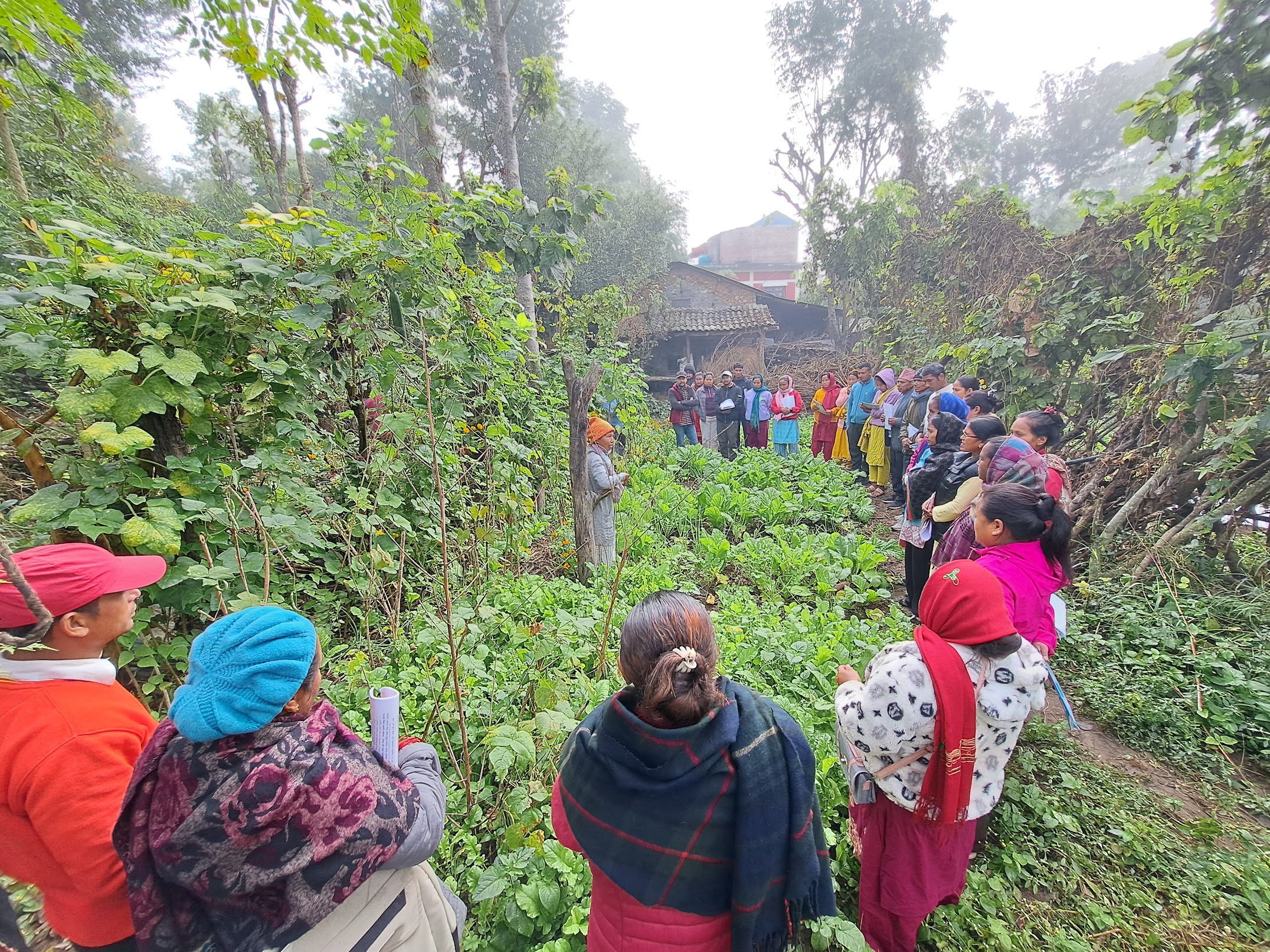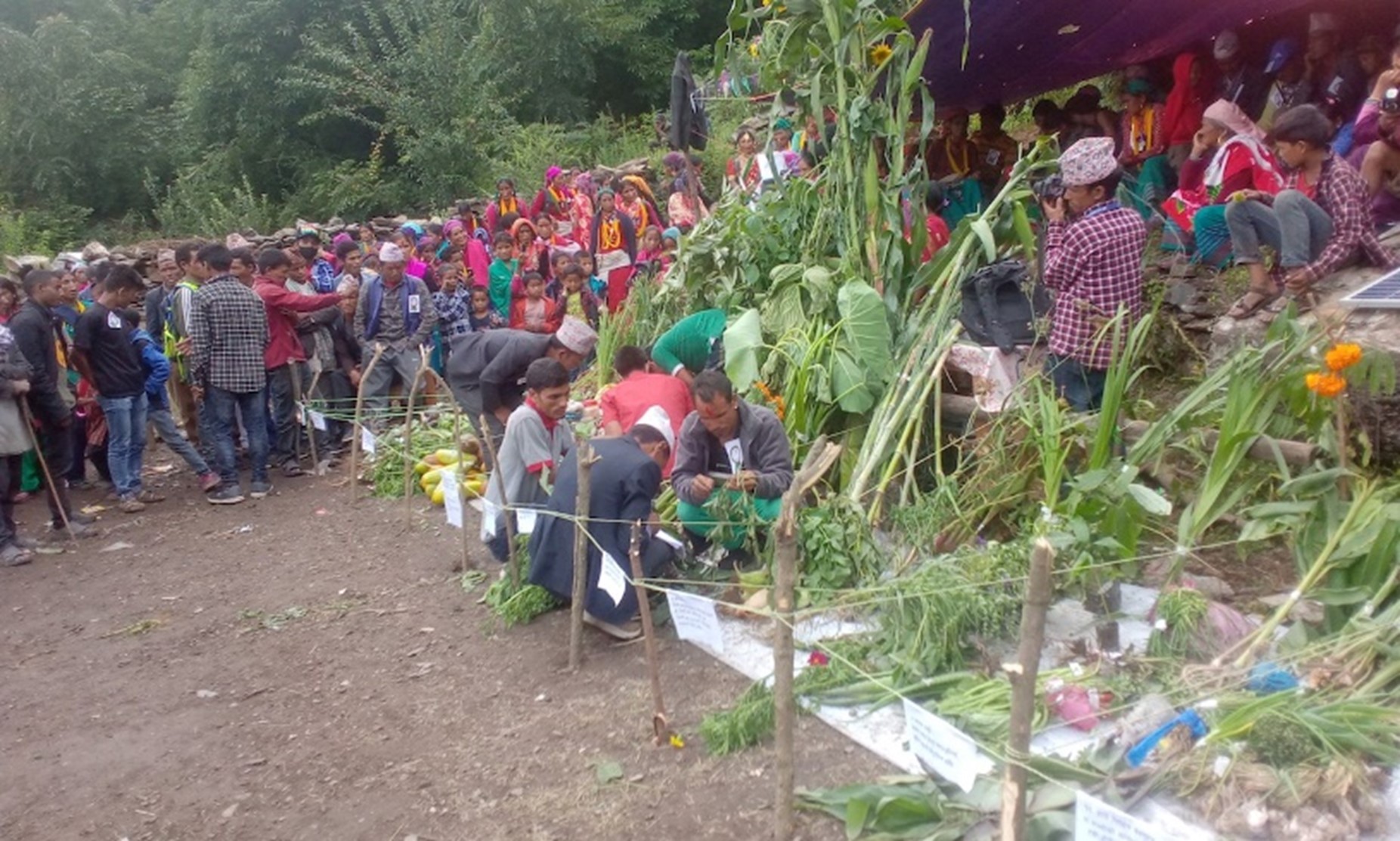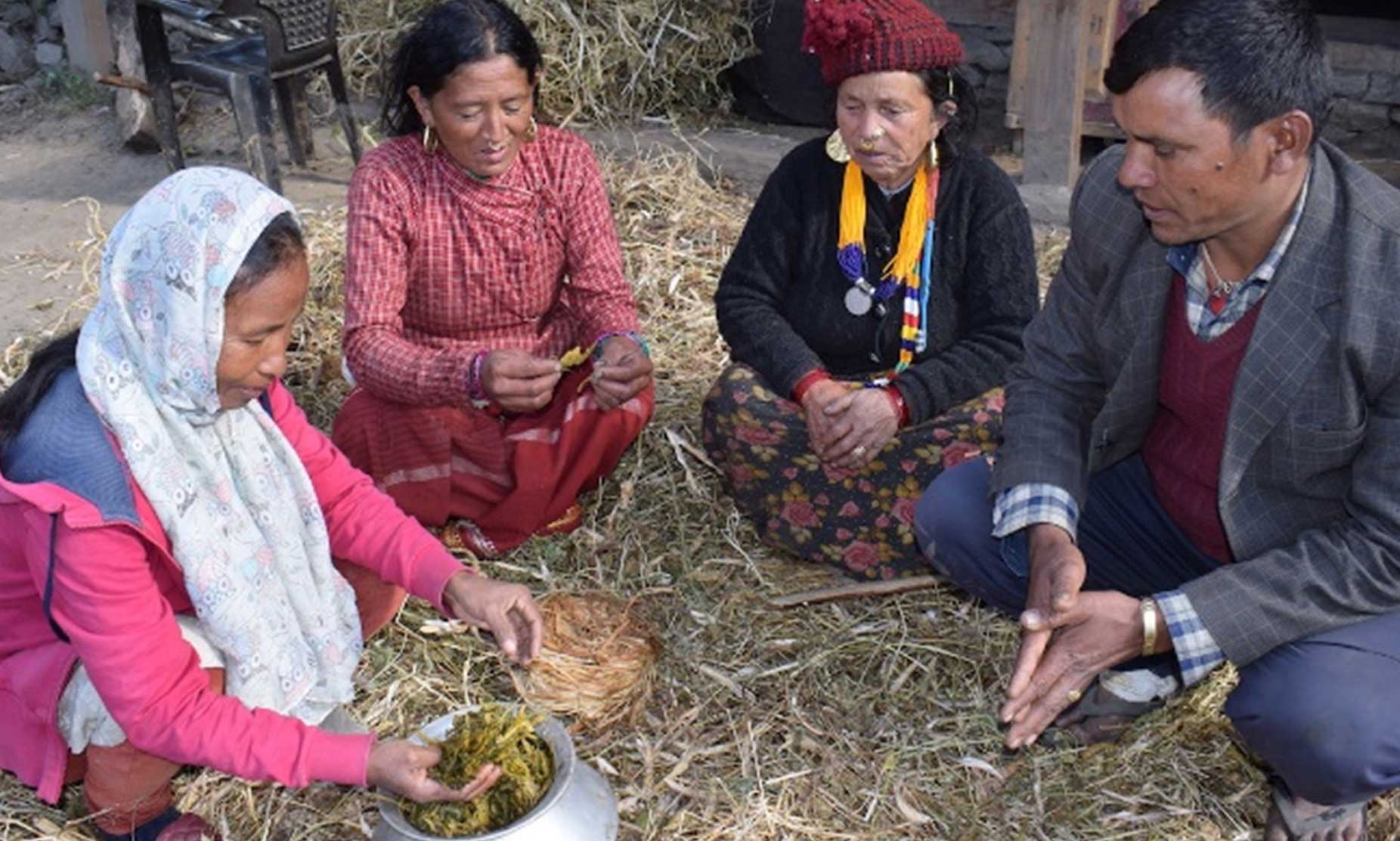Organic Karnali
Nepal
This project led by the Himalayan Permaculture Center is implemented in the Karnali Province, where the NGO has been working since 2011. In this Province, which has the lowest population density and is home to the poorest and marginalized population in Nepal, the project works to collaboratively design and create resilient, abundant communities having ecological, social and economic sustainability through agroecology. It is essentially a scale-up phase (called Phase 5), following 4 phases over 12 years developing HPC’s own capacity, as well as approaches and techniques designed amongst other aims to increase and diversify domestic farm productivity, reduce cost and regenerate local ecologies and economies.
Lead Organization
Himalayan Permaculture Centre (HPC): is a grass-roots NGO focusing on remote/poor/resource depleted farming communities in Surkhet & Humla districts of Western Nepal, and especially marginalised populations, using low-tech appropriate technologies to increase domestic farm productivity through reducing costs of labour, money and other external resources while increasing farm diversity, resilience, health, education and livelihoods.
Partner organizations: Local government and national NGOs such as Social Work Institute and Almost Heaven Farms. German INGO Welthungerhilf selected HPC as its implementing partner in its project called Green Evolution (GE): Pathways for Food System Transformation. This project has been incorporated into HPC’s Phase 5 scale-up. Local government Municipalities are also contributing. Additional partners are being sought.
Country
Nepal, Karnali province, ten districts.
Timeline
June 2023 – May 2028.
- Between March 2012-2023 (10-year project) = 4 phases including project design approach, trainings, capacity building, building up resources, outreach to villages and working on various agroecology and permaculture practices. They worked in 2 districts, 31 villages, and with 800 households and 5000 villagers.
- Between May 2023 – until May 2028 = Phase 5 = scale up. Building resilience through agroecology in Karnali (10 districts). Focus on Food security and Health and in particular preventive health.
Funding
Investment from local government have already been received. HPC is currently looking for additional funds
Mission
To collaboratively design and create resilient, abundant communities having ecological, social and economic sustainability through agroecology.
Through dynamic and innovative programming, communities will be able to provide for their own water, food, health and energy needs, becoming not only sustainable but truly regenerative, joining the global effort to create ecological, social and economic abundance.
Context
Socio-economic context: The Karnali Province comprises 10 districts, 79 municipalities and 718 wards (a political area usually containing 1 village). Its area is 27,984 square km and its population is 1,694,889 (2021 census) in approximately 300,000 households. The Karnali Province has the lowest population density at 61 people per square km (next lowest is Gandaki Province at 120pp/km2) and has a literacy rate of 58.5%. It has the lowest economic growth rate in the country with an annual economic growth rate of 5.7% and it contributes the least to the GDP (4.1%). The Province is among the poorest in Nepal with an estimated 28.9% of people living under absolute poverty (second highest in the country) and 51.7% of the people are multi-dimensionally poor (highest in the country). Finally, local population belong to lower castes.
Environmental context: The Karnali Province is composed of remote areas with steppes, rain, and snowmelt. Farmers are quite food insecure. The Province faced several decades of gradual erosion (forests were cut, land was cleared and lost its fertility) resulting in a lower productivity.
Main beneficiaries
Marginalized population from lower castes, mainly women.
Strategy
After 30 years of applied integrated rural development, HPC members have identified these following objectives and activities to be most effective in achieving the goal of resilient and abundant communities.
Objectives
Objective 1: Scale-up and Spread of best-practice methods and approaches of integrated, agro-ecological farming
Provide demonstration of and training in a range of technologies and approaches that increase domestic farm and household productivity
Objective 2: Creation of Regenerative Livelihoods
Facilitate establishment and operation of social enterprises and ethical business models based on agroecological abundance, that develop rural enterprises and income generating activities to improve local household and community economies
Planned activities (2023-2028)
Planned activities for Objective 1:
- Establishment and operation of 20 new demonstration and training farms in Karnali Province (5 in year 1; 10 in year 2; 5 in year 3)
- Associated farmers’ training programs in Agroecology, women’s health and practical schools’ classes (including design of school land)
- Develop farmers’ Agroecology Academy to train 75 “barefoot consultants” (farmer-trainers/designers)
Planned activities for objective 2:
- Develop cottage industries based on agroecologically-produced foods and edible oils, medicinal herbs, soaps, textiles, and biofertilizers
- Support cooperatives to attain Organic certification
- Provide business literacy training to facilitate market access
These activities need to be supported by effective governance and social and economic policies that ensure achieving a widespread application.
Effect and Impacts
Outcomes and results
In its first year, HPC initiated activities in 6 of the 10 districts of Karnali Province, comprising 9 municipalities including 5 from the Green Evolution project that is incorporated into Phase 5 activities. Outcomes include:
- 4 new demonstration and learning centers (called Resource Centers) designed and established using permaculture principles and design process, where agroecology methods and approaches act as demonstrations for farmers’ training. A further 2 existing Resource Centers developed since 2018 are supporting these roles. To date over 700 fruit, fodder and multi-purpose trees shrubs and grasses have been established on the new Resource Centers.
- The Resource Centers have also started to distribute over 3000 seedlings of fruit, fodder and multi-purpose trees shrubs and grass grown in their own nurseries to local farmers, primarily for agroforestry and orchard planting.
- Farmers’ training programs are run in different formats:
- 5-day integrated farming systems trainings on Resource Centers,
- 3-day integrated trainings in situ in villages, and
- short technical trainings (1-3 hours) at Resource Centers and in villages on single topics such as seed saving, nursery establishment and operation, biofertilizers and composting, Sustainable Rice Intensification, agroforestry, fruit tree grafting, orchard establishment, etc.
In total, to date, 383 different trainings have been provided to over 2100 farmers (73% women).
- 10 new barefoot consultants are undergoing capacity-building training including permaculture design course, training of trainers and apprenticing with experienced staff and barefoot consultants.
- Cottage-industry biofertilizer factory being established with local government support.
- Seedbanks were established in 2 municipalities.
- Street drama is provided to raise awareness about youth rights and agroecology.
Lessons learned
As the project is in the early stages, it is focusing on building up demonstrations, establishing training programs and beginning capacity building of new BCs, as well as establishing collaborative relationships with local municipality governments. Therefore, details of crop diversification and yield changes are not yet apparent but will be closely monitored and reported as soon as possible. Metrics such as soil OM, crop diversity, yield, time saved as well as economic benefits are being measured.
- The key strategies of prioritizing demonstrations and training are seen to be most effective, especially when performed by local barefoot consultants.
- Agroforestry is seen as the most important medium to long-term techniques (significant benefits after 1-2 years)
- Smokeless, fuel-efficient home-built stoves and biofertilizers are so far seen as the most effective short-term techniques (significant benefits within 1 year) for health, firewood collection and use, fertility management and pest control.
- Municipality governments are very interested in being involved and have significant funds available for investment.
Limiting factors/barriers
The challenges facing HPC and its implementation of Phase 5 are:
- Municipality funds not forthcoming/delayed
- HPC’s lack of knowledge/experience of the process to apply for Municipality funding
- Dolpa district – delay in municipality funding -> lack of fence & water -> site grazed and dried out
- Academy – HPC is attempting to register its academy in order to allow skilled farmers-level trainer-designers (BCs) to achieve accreditation/certification, however registration of the academy at provincial/national level is proving very complex and will require a budget outside of the scope of Phase 5 funding.
- Administration burden of multiple partners meaning field staff (and BCs) having to spend more time in office work/less in field
- Lack of qualified BCs (due to increased out-migration of youth)
- Schools’ program (involving teaching practical agroecology classes in schools and establishing demonstration gardens/school land design) delay to be implemented due to teachers’ strike
Before the permaculture program we didn’t know about beekeeping, or how to catch and use waste water, or how to grow trees. Now we have bees, and all our fodder and firewood needs close to the house, we hardly need to go to the forest at all. We have lots of fresh vegetables and fruits to eat, and the bees keep us healthy. There are so many benefits, all linked to agroecology and design of our homestead.
I have stopped using chemical fertilisers since 2 years now and farmed organically. One agroecology method I have used on my paddy (rice) has been collecting urine, diluting with water, and using that instead of urea fertiliser, it has improved the productivity of my rice, and there is less pest damage as well.






